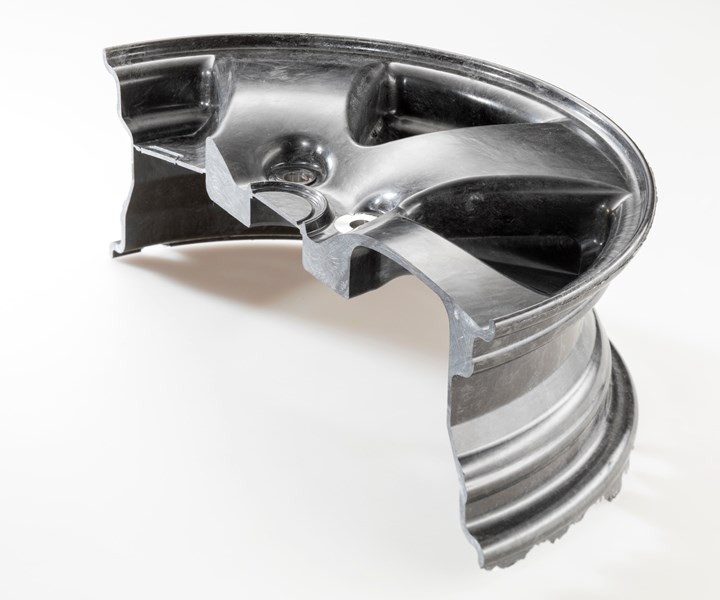Epoxy hardener designed for SMCs in e-mobility applications
Evonik has launched VESTALITE S, an epoxy hardener designed for sheet molding compounds (SMCs) in electric vehicles and other automotive applications.

Source | Evonik
Evonik (Marl, Germany) has launched VESTALITE S, a diamine-based epoxy hardener designed to improve the technical properties and workability of high-performance sheet molding compounds (SMCs). Applications include e-mobility and automotive lightweight construction.
According to Evonik, conventional standard SMCs manufactured with polyester resin typically have mechanical properties such as a bending strength of 200 MPa, flexural modulus of elasticity of 10,000 MPa, and an impact resistance of 90 kJ/m2 at a density between 1.7 g/cm³ and 1.85 g/cm³. This material is used, Evonik says, for the manufacture of automotive interior trim and hubcaps, although demand is increasing for even lighter materials with improved mechanical properties.
Based on its proven SMC base formulation, Lorenz Kunststofftechnik GmbH (Wallenhorst, Germany) has developed an epoxy SMC that meets all the requirements for lightweight construction and flame resistance, and which includes VESTALITE S as a key component, Evonik says. This SMC material reportedly exhibits high storage stability before hardening, but still permits fast curing within three minutes. These SMCs are also said to have no styrene emissions and very low VOC emissions, making them suitable for automotive interior components.
The composite material is made of epoxy reinforced with glass fiber and fillers, has a density between 1.5 and 1.7 g/cm³ and is said to have good flow properties. Its bending strength is > 350 MPa, its flexural modulus of elasticity is > 18,500 MPa, and it has an impact resistance of > 150 kJ/m2. The material is
also said to be flame-resistant and has high impact resistance even at temperatures of -30 °C, eliminating risk of brittleness or breakage.
Evonik said that its material and mechanical properties make the epoxy SMC ideal for use in battery housings in electric and hybrid vehicles.
Related Content
-
TCR Composites introduces TR1116 snap-cure epoxy prepreg resin system
Designed for press-cure applications, the resin system is highlighted for its snap-cure capability and tailored properties.
-
Carbon fiber satellite arm reduces weight, simplifies assembly onto naval vessels
Satcom developer EM Solutions partnered with ACS Australia to replace an aluminum arm design with a 65% lighter, one-piece, corrosion-resistant carbon fiber/epoxy alternative.
-
Super Resin Inc. highlights plant-based epoxy resin, foam core
Eco-friendly resin system using glycol lignin offers an eco-friendly option for CFRP structures and components, and core materials.
.jpg;width=70;height=70;mode=crop)





